 A timely reflection on the present and future of our planet in terms of the environmental issue, and the way in which our industry influences this.
A timely reflection on the present and future of our planet in terms of the environmental issue, and the way in which our industry influences this.
by Camilo Botero*
Yes there is and it is an unquestionable and scientifically demonstrable reality, by measurements and even by simple observation of our environment. Climate change and global warming, which are closely related phenomena, are unconcealable facts that increasingly impact the world in many aspects: melting of the poles and snow-capped mountains, stronger and more frequent storms and hurricanes, droughts, rising sea levels; warm climates are moving to higher altitudes, changing typical agricultural products of certain levels and generating diseases, such as malaria that was previously at sea level or near and already appears up to 2000 meters above sea level.
The generation that will suffer most forcefully the effects of climate change has already been born or is being born and when they are adults they will face a severely deteriorated environment. The IDEAM presented its study of the New Climate Change Scenarios and projects that by 2100 the situation will be really adverse. Greenpeace asserts that it is the greatest environmental threat facing humanity and our planet and I fully agree with this assertion. The UN specifies that 95% of environmental changes are due to human activity and continue to agree.
Naomí Klein, a Canadian political activist and environmentalist, has turned her attention to environmentalism, with a particular focus on Climate Change, on which she has written a book which deals with "how the climate crisis can drive economic and political transformation." In an interview with the German channel Deutche Welle, I heard two important concepts: one is that after 25 years fighting for the reduction of greenhouse gas emissions, these instead of going down have increased by 75% (controversial but shocking figure) and the other, which I totally share, is that it is due to the irrational use of HC (hydrocarbons).
The average global temperature of the planet is a balance between the energies that enter and leave the earth through the atmosphere, in addition to the energies converted and consumed by all human activity. Its current value is of the order of 14.5 °C, it has been increasing consistently since the end of the last century and has accelerated in our days, producing the aforementioned effects.
There is a very strong correlation between the concentration of CO2 and CO in the atmosphere and the average temperature of the earth; In addition, it is no secret to anyone that these two gases that deplete the ozone layer and are largely responsible for global warming, come mainly from the conversion of energy into thermodynamic cycles of very low efficiency used in aircraft engines and turbines, ships, trucks, cars, boilers, thermal plants, stoves and all kinds of furnaces and heaters, generally using hydrocarbon fuels. Efficient public transport is a priority, to reduce the emissions impact of our cars and buses.
As a mechanical engineer specialized in thermal engineering I have dedicated my whole life to projects that use these technologies, in addition to the equally inefficient cooling cycles, and I am increasingly aware that we must make a substantial change in our activity, especially drastically changing the energy base in which we are mounted by other alternative energies such as solar, wind, geothermal and / or substantially improving the current thermodynamic cycles through which we convert energy for others that far exceed the efficiency of said conversion.
When in the mornings I turn on the gas stove with flames at 1500 ° C, to heat the water to 90 ° C to make coffee, I am made aware of the disproportion of the use of HC fuels, likewise, when I start the engine of my car and I know that I only efficiently use 30% of the energy available in combustion and that the rest goes to global warming in the form of heat and Combustion gases, it gives me anguish because we are not correcting these situations and forgive for this strong expression, but it is.
The impact of our activity
As for the impact of our activity on air conditioning and the cold chain, it is clear that it is very high. The performance of the equipment measured either by its COP (Coeficient Of Performance), its EER (Energy Efficiency Ratio), its PLV (Partial Load Value) or the very representative Kw / TR mainly in large equipment, are in general very poor, even though they have been improving substantially, I would say: from bad to less bad! Well, there is no marked technological change that really drastically reduces energy consumption for air conditioning and the cold chain. There are excellent efforts but the result that is required has not yet arrived; I also know that it is not easy, but we have run out of time.
The same goes for the refrigerants we use in our guild; that refrigerant that is highly efficient, that does not attack the ozone layer and has a zero or imperceptible global warming factor does not yet arrive. Today the trend is towards natural refrigerants and good results have been achieved in refrigeration applications and in small equipment, but in large air conditioning equipment, which are energy consumers in large proportion, that desired combination of maximum efficiency with minimum environmental impact does not yet appear.
The control strategies in the systems in the design phase, then in the assembly and of course in the operation and maintenance, must achieve that the systems adjust to the partial loads in the most precise way possible, here we are left with an important task, because in my concept in general we do not properly use these controls in the systems.
The regulation in our Latin American countries to promote actions that improve the rational use of energy and make us ecological, is deficient or non-existent, in this we must use ourselves thoroughly from associations, universities, governments and all actors in our business. We must apply methodologies such as quality assurance, our air conditioning and cold chain systems (Commissioning) and energy audits, to find where and how they waste energy and attack the environment; correct anomalies, update and optimize such systems.
According to research by IDEAM, from today until the end of the century, colombia's average temperature increase will be 2.14 degrees Celsius. In the next 25 years the situation is very alarming because the temperature will rise almost one degree in all regions and in fact this value "could compromise the sustainability of many areas". The possible scenarios of climate change are evidenced and takes as variables the increase in temperature and the variability of rainfall, which will be used as a tool for decision-making that will allow the Government, territorial entities and productive sectors to plan their development actions, according to the challenges that will arise. It remains to be seen whether these decisions really have a positive impact.
An increase in temperature will reduce agricultural productivity, change crops and make them more fragile, increase sea levels, compromise moors and high mountain ecosystems, where the largest amount of water in the country is produced, and melt glaciers as is already happening. Other effects would be associated with the emergence of pests, health problems due to the outbreak of mosquitoes and problems due to rising sea levels in coastal cities.
In conclusion; all without exception, we have the obligation to optimize our energy consumption, minimizing the use of hydrocarbon fuels and our carbon footprint, effectively recycle, incorporate alternative energies, such as photovoltaic generation, water heating by solar radiation, wind generations, not polluting water, use rainwater and in our work as experts in air conditioning, refrigeration and cold chain, use the equipment of maximum efficiency, with optimal control at partial loads, with environmentally friendly refrigerants and incorporate alternative energies into the systems.
* Camilo Botero is the current Secretary of the Federation of Ibero-American Associations of Air Conditioning and Refrigeration - FAIAR; he was president of ACAIRE and is president of Camilo Botero Ingenieros Consultores Ltda. He has worked as a teacher in several Colombian universities, guilds and currently in ACAIRE in diploma courses of air conditioning projects, energy efficiency in air conditioning and refrigeration, cogeneration and trigeneration, applied psychometrics, thermodynamics, fluid mechanics, heat transfer and turbomachinery. ([email protected]).





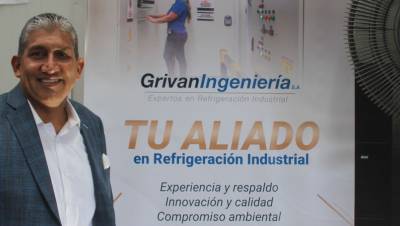

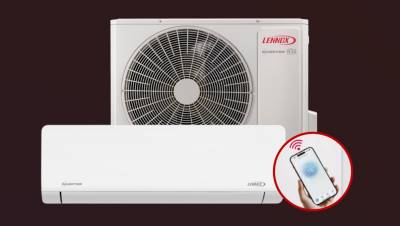


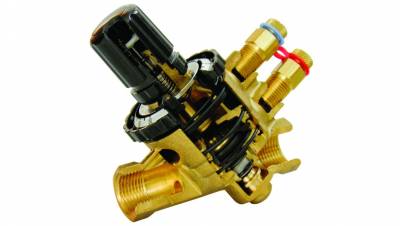

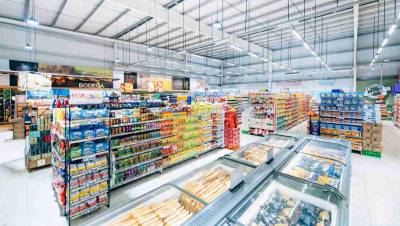



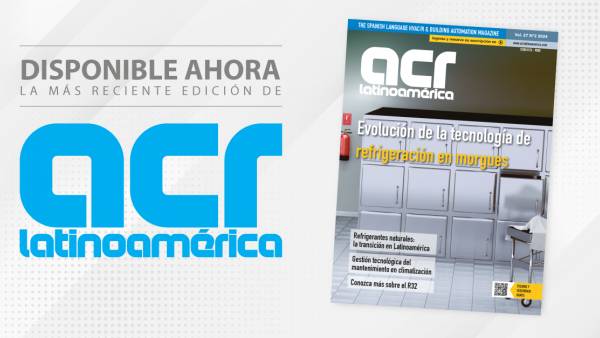







Leave your comment